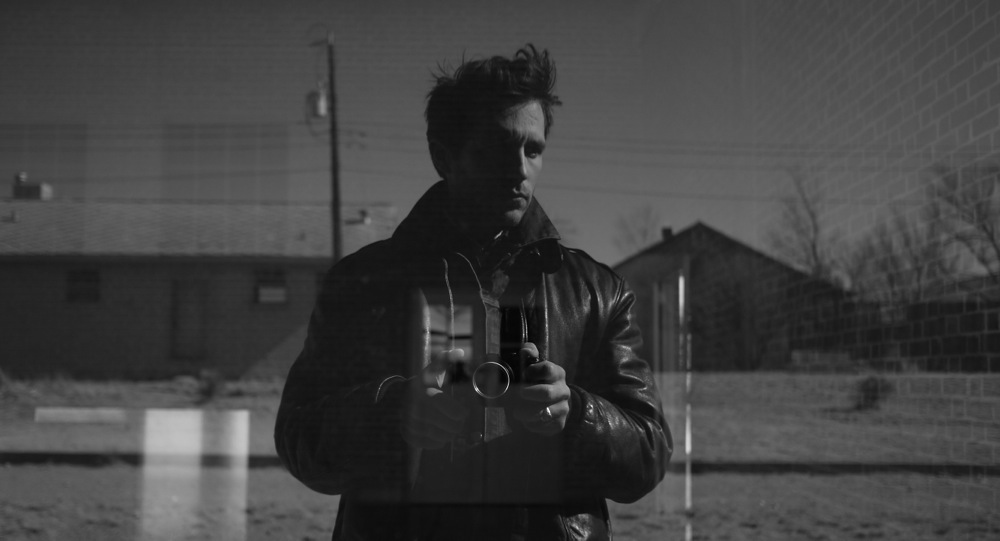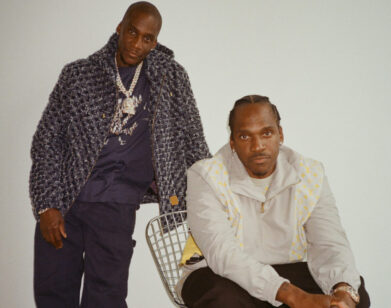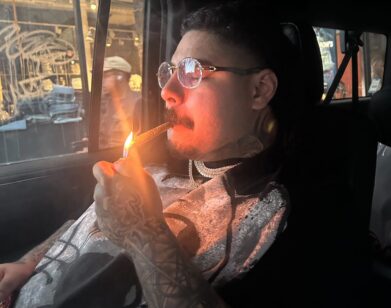JBM on Rising from the Ashes

If Bon Iver scored Into the Wild, it would sound a little bit like JBM. The solo project of singer-songwriter Jesse Marchant, JBM’s brand of fireside balladry separates him from his peers. JBM’s sophomore album Stray Ashes is like a musical green screen on which both lush landscapes and overcast cityscapes can be superimposed. Ashes captures feeling rather than locality. Some tracks beg for the creak of an old cabin floor, while others absorb the rhythm of a metropolis. The connective tissue is the persistent tension between anonymity and exposure, chaos and calm, and dark and light.
Marchant’s voice neither floats above nor flows beneath near-incantatory melodies, but weaves in and out of enticing percussion and charming acoustic guitar, creating a texture that is as cozy as it is stirring. Produced in several remote locations —wherever Marchant could find both serenity and a recording studio—Marchant convinces us (in the leaky basement of NYC’s Mercury Lounge, no less) that perhaps the journey itself is the destination.
AMANDA DUBERMAN: Your band name is relatively transparent apart from the “B.” What’s that for?
MARCHANT: The B is for Bryan, which is my middle name and my dad’s name. It had a lot of meaning to me. The initial thing was something I didn’t really think so much about, but as you keep making records you have to have a name, so I guess that’s the band name now.
DUBERMAN: How did you first start recording music?
MARCHANT: I started making recordings at home, and that turned out to be the last record. I hadn’t written music before that much, or written songs really. I’ve been playing guitar for a long time. I slowly started getting in the world of music and getting to know people. It started becoming a bigger and bigger part of my life, and now it’s gotten to the point where it’s what I live for.
DUBERMAN: You have an acting background right? I get if if you’d prefer to stick to talking about the music, though.
MARCHANT: No, I’m not one of those people who minds talking about that. I dropped out of college because I was unhappy with what I was doing, and an opportunity presented itself to do acting. It gave me the chance to move to New York. I started doing that when I was 19. I wasn’t getting much creative fulfillment out of it. It didn’t take very long to get to feeling like it wasn’t really for me. It was just because the opportunities came very easily, for some reason, and all of a sudden I was an actor.
DUBERMAN: Were you always doing music simultaneously, or did you intentionally shift your attention from one to the other?
MARCHANT: I had always played music. Once I started writing songs, I moved out to Los Angeles and I had a lot of time on my hands because I didn’t know anyone.
DUBERMAN: Why did you decide to move out there?
MARCHANT: I’d been living in New York for a while, and I just decided I wanted a change. There were opportunities for me to move out there, just shifts in my life. Shifts in my life tend to be marked by a move, one thing ends and another begins and I tend to move locations accordingly. [laughs]
DUBERMAN: Is that when you really made the transition to music? Or was it not really a transition at all?
MARCHANT: It was definitely a shift.
DUBERMAN: That’s refreshing to hear. Most of the time you hear actors or actresses get really defensive, like, “I was doing this the whole time!”
MARCHANT: No, I definitely don’t mind saying it was a real transition. Again, though, I’d always been playing guitar but I hadn’t been writing songs. One finally just substituted the other. When I started making demos at home I started turning down auditions. It just meant more to me to play music, so I went with it.
DUBERMAN: So that was the frame of mind for the first record Not Even In July. How about Stray Ashes?
MARCHANT: It was kind of a different process. The first record, I was sitting around in the morning, playing guitar, writing down the occasional thing. I was really enjoying doing that. The second time around, it wasn’t that. It was really a much more intentional collection of ideas. It was sort of a putting-together-pieces project and then making something whole out of those pieces.
DUBERMAN: You’d always played guitar; what was it like to start writing songs?
MARCHANT: I had always written, but less lyrically. I had done some prose. I would write short stories. Not often, though. Maybe once a year I would have something that happened and I just want to write it all out.
DUBERMAN: Do those ever materialize or translate into songs?
MARCHANT: No, not really. Not that I create them separately, but they are usually longer and more elaborate and don’t lend themselves to individual songs. I’m not a consistent writer-downer, I guess; I usually write in waves.
DUBERMAN: Since the first record was received well, did you approach the second from a more self-conscious place, knowing that people would hear it?
MARCHANT: I don’t really think about that. I really don’t. When you’re touring and when your album is being released, you’re so aware of your position in the world because people are around you reminding you all the time. When you’re not doing that, and you’re out just living, the ways I was living while recording the second record, I was so far away from people that it’s not soothing. It’s really in the moment, but still thoughtful. I think it would fuck with me to think of it any other way.
DUBERMAN: What kind of places were you living?
MARCHANT: I was just living in places where I could find a big property that was not around other people so I could make a lot of noise and have a lot of privacy. For some reason, I felt like I needed to have a lot of space and privacy at the time.
DUBERMAN: So it sounds like you chose places irrespective of actual location, but in terms of output, did you notice that more urban places influenced you in a different way than more rural or suburban settings?
MARCHANT: I think they do. A lot of the writing comes from looking back on things, though. It’s important for the setting to be peaceful and conducive for me to reconnect with whatever feelings or subject matter goes into the music.
DUBERMAN: I noticed that while listening it. The songs on your record are really unique in the sense that less than connecting you to a certain place, they connect you to more of a feeling.
MARCHANT: Exactly. It’s more about the feeling it’s evoking, like you said, irrespective of location. Apart from that, I don’t really try and do anything. I just try to express the thing that I am living through. I guess the goal, when I listen back to it, is for it to feel identifiable. I can’t really say how I decide that, it’s really just a visceral reaction. I’ll record something and listen back to it and either I’ll think “I recognize this, I feel it and I connect with it,” or I don’t. If I don’t connect to it, it doesn’t feel good to listen to.
DUBERMAN: “Stray Ashes” isn’t a track on the album, where did the title come from?
MARCHANT: The lyric “stray ashes” comes from the last track on the record called “Keeping Up.” I got a lot of shit from people saying they can’t understand what I’m saying on this record. So it’s not surprising that you had to ask that. [laughs]
DUBERMAN: Do you write lyrics as you write music?
MARCHANT: Actually, it’s completely separate for me. I kind of laid the foundations, got the melodies right, and then fill it in with stories. Sounds of words are very important to me, the cadence of the sounds matters a lot. I spend a lot of time on that.
DUBERMAN: That sounds very meticulous.
MARCHANT: It is. I never compromise either. It’s a puzzle. I actually really enjoy that. It’s really satisfying when you nail what you wanted to say and the sound you want to have. Like I said, it has to feel good to listen to.
STRAY ASHES IS OUT NOW. FOR MORE ON JBM, VISIT THE ARTIST’S WEBSITE.






